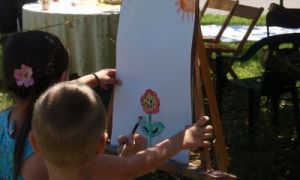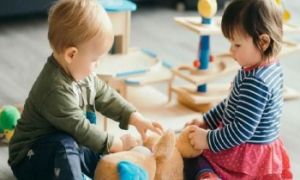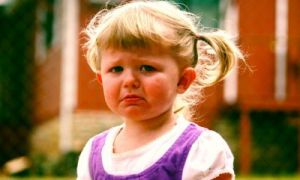Toddler advance and gains new skills in Gross Motor Development milestones achieved throughout earlier years. Co-ordination and challenges that could not be performed before such as hopping, skipping and balancing are now easier to attempt. Toddlers are more agile and athletic during this stage than before.
Gross Motor Development Milestones
- jumps with both feet together
- runs forward
- attempt challenging balancing activities (walking along a balance beam)
- climbs up and down ladders
- slides and manoeuvres easily through playground equipment
- carries an object while walking
- walks up stairs alternating feet(often still using the rail for support)
- stands on one foot, with support
- walks on their tiptoes
- ride a tricycle
- kicks a ball forward
- walks, runs, climbs, kicks and jumps easily
- uses steps one at a time
- squats to play and rises without using hands
- catches ball rolled to him/her
- walks into a ball to kick it
- jumps from low step or over low objects
- attempts to balance on one foot
- avoids obstacles
- able to open doors
- stops readily
- moves about moving to music:
- able to balance on one foot (for a few seconds)
- can carry out more than one physical task through improved co-ordination
- sits in a chair during meal times
- can throw and catch a ball (medium or large size)
- climbs up and slide down a playground slide unassisted
- throws and catches a ball easily
- kicks a ball through improved balance
- runs around objects in their path
- climbs well
- walks down stairs alone, placing both feet on each step
- swings leg to kick ball
- runs easily
- pedals tricycle
- bends over easily without falling
Not only are toddlers developing increased co-ordination and balance, due to gross motor skills at this age, there are also a number of physical body changes that toddlers will experience (such as height, neurological changes in the brain and weight). As a toddler grows and becomes leaner and more agile they are able to take part in physical activity for longer without tiring.


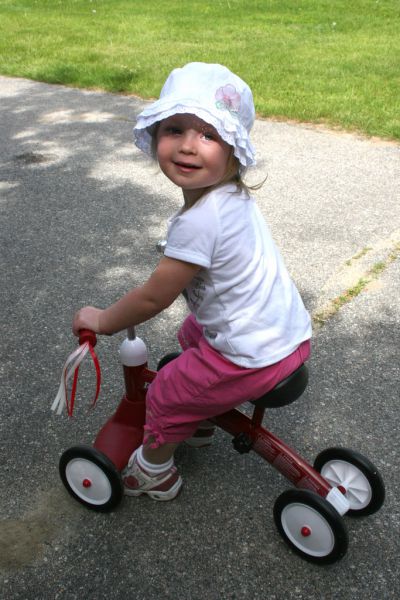
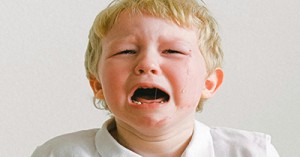
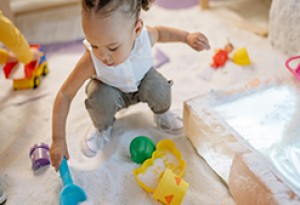
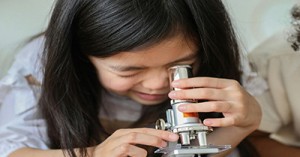
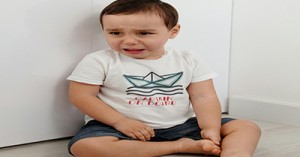
 Toddlers have a greater understanding of the world around them by this stage. Their cognitive development (also known as intellectual development and thinking skills) continues
Toddlers have a greater understanding of the world around them by this stage. Their cognitive development (also known as intellectual development and thinking skills) continues Infants begin to develop trust when parents begin to fulfil their needs. Such as changing an infant's nappy when needed, feeding on request and holding
Infants begin to develop trust when parents begin to fulfil their needs. Such as changing an infant's nappy when needed, feeding on request and holding Beginning at birth the construction of thought processes, such as memory, problem solving, exploration of objects etc, is an important part of an infant’s cognitive
Beginning at birth the construction of thought processes, such as memory, problem solving, exploration of objects etc, is an important part of an infant’s cognitive Toddlers want to do more on their own and do not like it when you begin to establish limits on their behaviour. Tantrums can become
Toddlers want to do more on their own and do not like it when you begin to establish limits on their behaviour. Tantrums can become Your preschooler is now able to focus their attention more accurately and is less influenced by distractions. The intensity of questions increase as your child
Your preschooler is now able to focus their attention more accurately and is less influenced by distractions. The intensity of questions increase as your child John Dewey is often seen as the proponent of learning by doing – rather than learning by passively receiving. He believed that each child was active,
John Dewey is often seen as the proponent of learning by doing – rather than learning by passively receiving. He believed that each child was active, Toddler advance and gains new skills in Gross Motor Development milestones achieved throughout earlier years. Co-ordination and challenges that could not be performed before such
Toddler advance and gains new skills in Gross Motor Development milestones achieved throughout earlier years. Co-ordination and challenges that could not be performed before such Erik Erikson developed a psychosocial theory to understand how we each develop our identities through eight stages of psychosocial development from infancy to adulthood. The
Erik Erikson developed a psychosocial theory to understand how we each develop our identities through eight stages of psychosocial development from infancy to adulthood. The At this point preschoolers begin to interact effectively with others. Play becomes more innovative and organized and “boyfriend” or “girlfriend” begins to emerge. Preschoolers have
At this point preschoolers begin to interact effectively with others. Play becomes more innovative and organized and “boyfriend” or “girlfriend” begins to emerge. Preschoolers have From now, babies begin to identify and respond to their own feelings, understanding other's feelings & needs and interact positively with others. A baby's social and
From now, babies begin to identify and respond to their own feelings, understanding other's feelings & needs and interact positively with others. A baby's social and